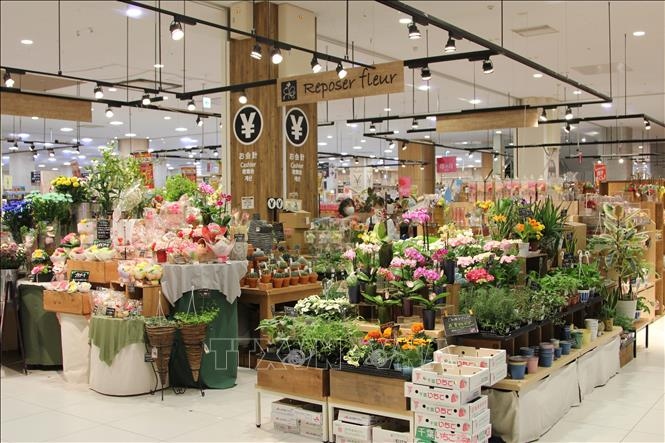Vietnamese flowers secures foothold in Japanese market
VOV.VN - Japan spent 65.3 billion JPY equivalent to US$528 million on importing flowers last year, including US$45 million on imports from Vietnam, according to the Japan Customs.

Various kinds of local flowers have successfully established a foothold in the Japanese market and become more popular among consumers there, with the East Asian nation now being one of the country’s key important flower export markets.
According to Kaori Sato, head of crop products division of the retail corporate group AEON, approximately 40% of the flowers on put on sale in AEON Mall Makuhari in Chiba Prefecture are imported flowers.
Hiroshi Yamasaki, an office worker in Tokyo, said he often purchases flowers to give to his relatives and friends, whilst he is particularly fond of Vietnamese flowers as they are typically both very fresh and beautiful.
The latest statistics compiled by the Japan Customs indicate that in 2021, Japan spent JPY65.3 billion, equal to US$528 million, on importing flowers, including US$45 million on imports from the Vietnamese market, or 8.52% of the total. This therefore means the country ranked fourth among nations and territories exporting flowers to the Japanese market.
Vietnamese flower export turnover reached US$61.8 million in 2021, thereby marking an annual rise of 27%.
According to details given by the Vietnam Trade Office in Japan, Japan primarily imports carnations, chrysanthemums, lilies, orchids, and roses from the nation.
Economic experts highlighted the huge potential that exists for Vietnamese flowers in the highly-lucrative market, particularly as Vietnam's market share of the Japanese flower market has grown rapidly over recent times.
Moving forward, there is ample room for the country to further expand its flower export to Japan, Sato said.
Vietnamese Trade Counsellor in Japan Ta Duc Minh suggested that Vietnamese flower growers and exporters pay special attention to ensuring the overall quality of flowers in accordance with their commitments to Japanese partners. Indeed, they should strictly comply with Japanese regulations on plant quarantine and make use of chemicals to preserve or colour flowers.
